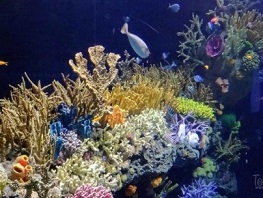
Two recent studies shine a light on a relatively new field of study: the means by which climate tipping points can lead to ecosystem collapse, and how quickly such crashes might occur. The first study modeled a database of aquatic and terrestrial ecosystems and found that large ecosystems, while seeming more stable, can collapse disproportionately faster than small ones due to a domino effect by which interrelated habitats and species within a system can impact each other, causing a rapid cascading collapse.









